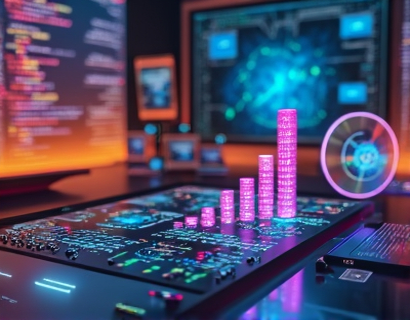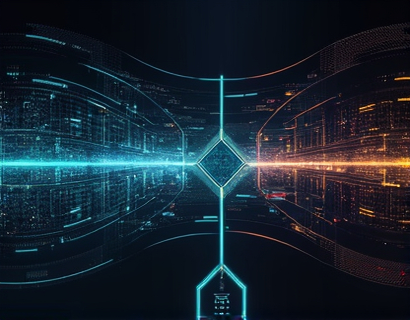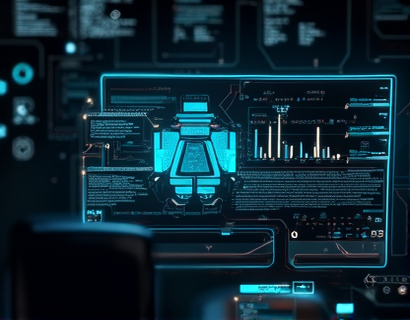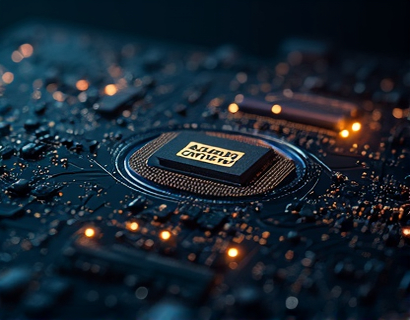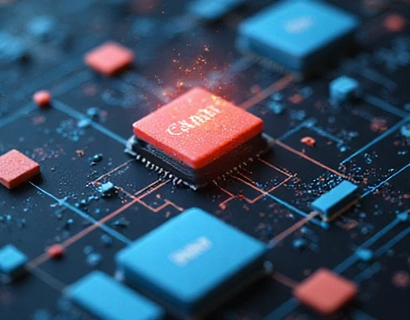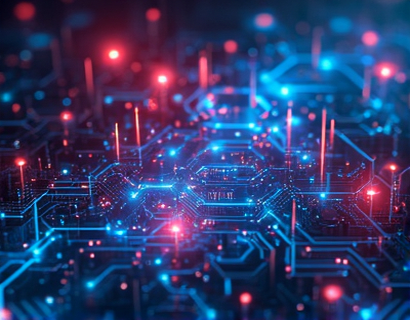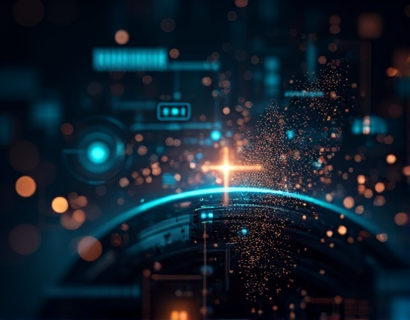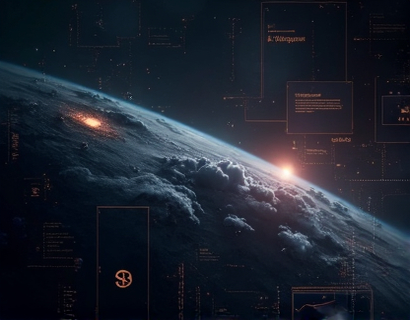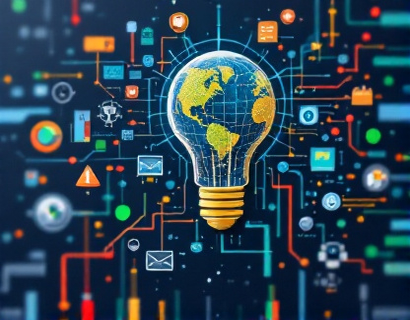Decentralized Productivity: Revolutionizing Workflows with AI and Cryptocurrency
The integration of artificial intelligence (AI) and cryptocurrency is ushering in a new era of digital productivity, one that promises to transform the way we work and collaborate. This revolution is not just about adopting new technologies but about fundamentally changing the infrastructure that supports our professional lives. By merging these two powerful domains, we can create decentralized applications that enhance efficiency, security, and innovation. This article delves into the transformative potential of this fusion, exploring how it can streamline tasks, boost professional capabilities, and redefine the future of work.
Understanding Decentralized Productivity
Decentralized productivity refers to the use of decentralized technologies to improve and automate workflows. Unlike traditional centralized systems where data and processes are controlled by a single entity, decentralized systems distribute control across a network of nodes. This distribution not only enhances security by eliminating single points of failure but also promotes transparency and trust among participants. When AI is integrated into these decentralized systems, the result is a powerful toolset that can optimize various aspects of professional work.
AI in Decentralized Systems
AI plays a crucial role in decentralized productivity by providing intelligent automation and decision-making capabilities. In a decentralized environment, AI can process vast amounts of data from multiple sources, identify patterns, and make predictions or recommendations without the need for a central authority. This capability is particularly valuable in scenarios where data is dispersed across a network, such as in supply chain management or content moderation.
For instance, AI-driven smart contracts can execute complex tasks based on predefined conditions, ensuring that transactions are completed accurately and efficiently. These smart contracts can adapt to changing circumstances, thanks to the machine learning algorithms that power them, making them highly versatile and reliable.
Cryptocurrency and Decentralized Finance (DeFi)
Cryptocurrency, the digital or virtual currency that uses cryptography for security, is a cornerstone of decentralized productivity. Beyond being a medium of exchange, cryptocurrencies enable new financial models and services through Decentralized Finance (DeFi). DeFi platforms offer a range of financial tools, including lending, borrowing, and trading, all operated on blockchain networks without intermediaries.
These platforms leverage smart contracts to automate and secure financial transactions, reducing costs and increasing accessibility. In the context of productivity, DeFi can provide seamless funding solutions for projects and businesses, allowing them to access capital quickly and efficiently. This is particularly beneficial for startups and small businesses that may struggle to secure traditional financing.
Enhancing Workflow Efficiency
One of the most significant benefits of decentralized productivity is the enhancement of workflow efficiency. By automating repetitive and time-consuming tasks, AI and blockchain technologies free up valuable time for more strategic and creative work. For example, AI can handle data entry, scheduling, and routine reporting, while blockchain ensures that all transactions and processes are transparent and immutable.
Decentralized project management tools can coordinate tasks across a global team, ensuring that everyone has real-time access to the same information and updates. This reduces miscommunication and delays, leading to faster project completion and higher quality outcomes. The use of AI in these tools can further optimize task allocation, predicting the most efficient assignments based on team members' skills and availability.
Security and Trust
Security is a paramount concern in any productivity system, and decentralized technologies offer robust solutions. Blockchain's inherent security features, such as cryptographic hashing and consensus mechanisms, protect data from tampering and unauthorized access. AI can enhance these security measures by detecting and mitigating potential threats in real-time.
Trust is another critical aspect, as decentralized systems eliminate the need for intermediaries, reducing the risk of fraud and corruption. Smart contracts, for example, ensure that agreements are executed as intended, with all parties having a transparent and verifiable record of the transaction. This level of trust is essential for fostering collaboration and innovation in a decentralized environment.
Innovative Decentralized Applications
The combination of AI and cryptocurrency has given rise to a new generation of decentralized applications (dApps) that are revolutionizing various industries. These dApps leverage the strengths of both technologies to create powerful tools for productivity and collaboration.
In the realm of content creation, decentralized platforms can use AI to curate and monetize user-generated content, ensuring creators receive fair compensation. These platforms can also employ blockchain to verify ownership and provenance, preventing piracy and ensuring authenticity. For businesses, decentralized marketplaces can connect suppliers and buyers directly, reducing transaction costs and increasing transparency.
In the field of research and development, decentralized collaboration platforms can pool resources and expertise from around the world, accelerating innovation. AI can facilitate the analysis of large datasets, identifying trends and insights that would be impossible for humans to discern alone. This collaborative approach, combined with the security and efficiency of blockchain, can lead to breakthroughs in areas such as healthcare, environmental science, and technology.
Challenges and Considerations
While the potential of decentralized productivity is immense, there are several challenges and considerations that must be addressed. One of the primary challenges is scalability. Current blockchain technologies often struggle with high transaction volumes and slow processing times, which can hinder the performance of decentralized applications. However, ongoing developments in blockchain architecture, such as layer 2 solutions and sharding, are aimed at addressing these issues.
Another consideration is the user experience. Decentralized systems can be complex and intimidating for new users, requiring intuitive interfaces and user-friendly onboarding processes. Education and community support are crucial in helping users understand and effectively utilize these technologies.
Regulatory environments also play a significant role in the adoption of decentralized productivity. As governments and regulatory bodies begin to recognize and adapt to these new technologies, clarity and support will be essential for widespread adoption. Collaboration between tech developers, policymakers, and industry stakeholders is necessary to create a favorable ecosystem for decentralized solutions.
The Future of Decentralized Productivity
The future of decentralized productivity is bright, with continuous advancements in AI and blockchain technologies promising even greater capabilities. As these technologies mature, we can expect more sophisticated and user-friendly decentralized applications that seamlessly integrate into our daily work routines.
The convergence of AI and cryptocurrency will not only enhance individual productivity but also drive collective progress. By fostering a more secure, transparent, and efficient digital landscape, we can unlock new possibilities for collaboration, innovation, and growth. The journey towards a decentralized future is just beginning, and the potential for transformation is limitless.




